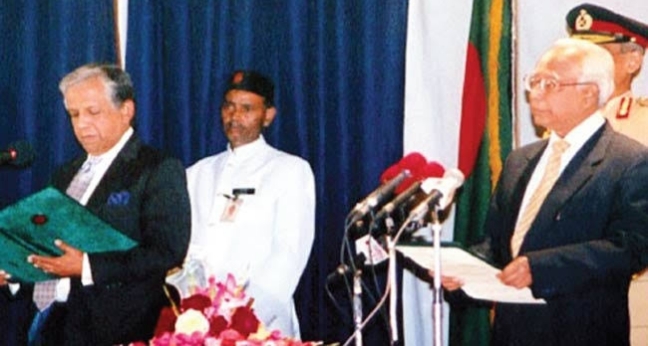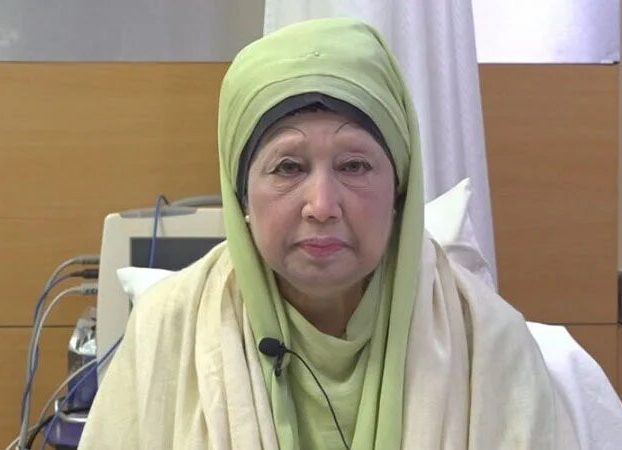
On January 11, 2007, an important event took place in the political history of Bangladesh. Due to the political unrest at the time, a caretaker government backed by the military came to power, commonly known as the “Eleven”. The main tasks of this government were to restore political stability to the country, reform the electoral system, and take tough measures against corruption. Some important advisors play a major role in the functioning of this government, who help the government with their expertise in various sectors. This report will discuss their role, activities, and impact in detail.
Background of Caretaker Government
Political unrest
In 2006, political unrest reached its peak. The two main political parties, the Bangladesh Awami League and the Bangladesh Nationalist Party (BNP), adopt a hostile attitude towards each other. During the election period, Awami League started expressing doubts about the fair election under the ruling BNP-alliance government. All this resulted in the need for a caretaker government.
Role of the Army
The army had to play an important role in forming the caretaker government of Bangladesh. An army-backed caretaker government, known as the Eleven, was formed under the leadership of Fakhruddin Ahmad. The main objective of this government was to eliminate corruption and bring political reforms.
Advisors to the Caretaker Government
Fakhruddin Ahmad: Chief Advisor
Fakhruddin Ahmad was the chief adviser of the eleventh government. His background was mainly working as the Governor of World Bank and Bangladesh Bank. Under his leadership, the government took tough measures against corruption and tried to bring about political reforms.
Mohiuddin Ahmad: Economic Adviser
Mohiuddin Ahmad was a famous economist. He led the economic reforms of the caretaker government. Notable among his activities were budget formulation and participation in negotiations with the International Monetary Fund.
ATM Shamsul Huda: Election Commissioner
ATM Shamsul Huda was the Chief Election Commissioner under the caretaker government. Under his leadership, the government tried to ensure a fair electoral system. He took the initiative to reorganize the voter list and launch digital voter ID.
Hossain Zillur Rahman: Education and Social Services Adviser
Hossain Zillur Rahman was the in-charge adviser on education and social services. He emphasized on reforming the education system and social development. His work included initiatives to improve the quality of school education and launch scholarships for students.
Mainul Hossain: Adviser on Law and Justice
Mainul Hossain was the in-charge advisor of the Law and Judiciary Department. Under his leadership, legal action was taken to ensure the independence of the judiciary and against corruption. He amended several laws to make the judiciary free from corruption.
Iftekhar Ahmed Chowdhury: Foreign Affairs Adviser
Iftekhar Ahmed Chowdhury was the foreign advisor to the caretaker government. He worked to develop international relations and strengthen Bangladesh’s diplomatic position. Several important international agreements were signed under his leadership.
Mirza Azizul Islam: Economic Adviser
Mirza Azizul Islam was another economic advisor to the caretaker government. His responsibility was to formulate the budget and ensure economic stability. He worked to reform the country’s economic policy and increase investment in developing sectors.
Activities and Effects of Government
Anti-Corruption Campaign
One of the main initiatives of the caretaker government was the anti-corruption campaign. Many political leaders, businessmen and government officials were arrested in this raid. The action created a nationwide stir and spread panic in the political arena.
Electoral reforms
Electoral reform was another major initiative of the caretaker government. A new Election Commission was formed and the electoral roll was restructured. This brings some transparency to the country’s electoral system, which serves as a basis for subsequent elections.
Economic policy
The caretaker government took several steps to ensure economic stability. The government’s economic advisers handle budget formulation, tax policy reform and international debt. These steps bring some stability to the country’s economy.
Independence of Judiciary
Under the leadership of the Legal and Judicial Adviser, initiatives were taken to ensure the independence of the judiciary. Several steps were taken to make the court system corruption-free, including legislative amendments and the formation of special courts.
Government successes and failures
Success
The caretaker government achieved some notable successes in fighting corruption and electoral reforms. They also had some success in ensuring economic stability and the independence of the judiciary. Besides, they are able to achieve something in the development of education system and international relations.
Failure
The caretaker government faced some notable failures in their operations. The anti-corruption drive elicited mixed reactions from the public. Some people consider it as part of political vendetta. Besides, the government has not been entirely successful in bringing back political stability.
Fall of government and withdrawal of advisers
Collapse of Government
After the end of the caretaker government in late 2008, a democratic government was installed through elections. The caretaker government’s advisers resigned and the new government took over. Through this, the activities of the eleventh government ended.
Succession of Advisors
The effects of the activities of advisors to the caretaker government are long-lasting. Their initiatives resulted in some important changes in the country, which served as a model for subsequent governments. But there are also controversies about their activities, which have influenced the political history of Bangladesh in the future.
The advisors of the eleventh government played a major role in various important areas of the political and administrative spheres of Bangladesh. Their leadership and activities led to improvements in some areas of the country, but also failures in others. In evaluating their activities, the long-term impact must be seriously considered. This report provides a comprehensive picture of Bangladesh’s caretaker government by highlighting the role and activities of advisors.

 Md. Ibrahim Hossain Bishal
Md. Ibrahim Hossain Bishal 


















